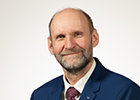Guardians of the Economy
Session: 15th Estonian Parliament, 4th sitting, press briefing
Date: 2024-12-18 15:19
Participating Politicians:
Total Speeches: 14
Membership: 15
Agenda Duration: 16m
AI Summaries: 14/14 Speeches (100.0%)
Analysis: Structured Analysis
Politicians Speaking Time
Politicians
Analysis
Summary
In the sixth question debate held between government members and members of the Riigikogu, the focus was on promoting regional development in the economic sphere and the criticism surrounding the necessity of creating new positions, or "social economic growth guardians." The debate highlighted the role of local governments and development centers in implementing development plans, utilizing investment opportunities, and the importance of the effective distribution of European Union funds throughout the country’s regions. The significance of the Haapsalu railway project in promoting regional networks and economic growth was also brought up, along with questions regarding how and why available funds and knowledge can be better distributed to the regions.
Decisions Made 1
No official decisions were made in the discussion.
Most Active Speaker
The most active speaker was Helir-Valdor Seeder (Isamaa) – he spoke three times, representing a right-wing (justice-oriented) political position.
Esimees Lauri Hussar
AI Summary
The Riigikogu is discussing today the sixth question on the topic of economic watchdogs; the question is posed by Riigikogu member Jaanus Karilaid to Interior Minister Lauri Läänemets in his capacity as Prime Minister.

Jaanus Karilaid
Profiling Fraktsiooni mittekuuluvad Riigikogu liikmedAI Summary
Karilaid criticizes the creation of four new positions of a "watchdog for social and economic growth" as a ridiculous and wasteful idea, emphasizing that the development plans of local municipalities and the business consultants and investment advisers working in development centers, in cooperation with the central government, are sufficient for economic growth and job creation, and that in the absence of real regional policy and investments these additional workers would mean only political control and waste of money (including in the context of Haapsalu railway investments).
Siseminister Lauri Läänemets
AI Summary
During the presentation, Läänemets said that the Haapsalu railway needs continued persuasion within the coalition and funding, and in the name of regional development EU funds should be allocated according to regional needs, because people leaving rural areas and the outflow of knowledge is a problem, and previous investments have focused on the centers of major cities.
Esimees Lauri Hussar
AI Summary
The chairman Lauri Hussar informs that Jaanus Karilaid has a clarifying question and asks him to present it.

Jaanus Karilaid
Profiling Fraktsiooni mittekuuluvad Riigikogu liikmedAI Summary
Jaanus Karilaid accuses the government of neglecting local development needs and the infrastructure needs of rural areas, suspects motives for hiring civil servants, and highlights the rail link expected for Hiiumaa and Läänemaa, while at the same time criticizing a 30,000-euro cut in the cost of the position of a special correspondent as evidence of a lack of results.
Siseminister Lauri Läänemets
AI Summary
Lauri Läänemets said that about 3 billion euros of funding for the green transition and the know-how should also be brought to rural areas, because previously a large portion of the support has reached Tallinn and the Tartu region, and the aim is to reach rural areas at least 40%, to solve the problems of infrastructure and access to capital, and to ensure balanced funding of state and local needs, without overburdening it with cuts.
Esimees Lauri Hussar
AI Summary
Chairman Lauri Hussar asked Helir-Valdor Seeder a supplementary question.

Helir-Valdor Seeder
Profiling Isamaa fraktsioonAI Summary
Helir-Valdor Seeder called the creation of four regions stupid, which would increase bureaucracy and centralize decision-making in the ministries, and stressed that the existing associations of municipalities and development centers can adequately support life in the counties, and that funds would reach rural areas more effectively through political decision-making, rather than by creating four new positions.
Siseminister Lauri Läänemets
AI Summary
Läänemets emphasizes that democracy means different visions, and although the abolition of county administrations and regional inequality has caused concern, there remains a continuing need for regional development and crisis response, and regional crisis committees, led by the Rescue Board, together with representatives of local governments and businesses, are becoming increasingly important.
Esimees Lauri Hussar
AI Summary
He finishes dealing with today’s sixth question, and before moving on to the seventh question, Helir-Valdor Seeder has raised his hand and presents a question about the procedure for conducting the session.

Helir-Valdor Seeder
Profiling Isamaa fraktsioonAI Summary
Helir-Valdor Seeder states that the minister's claim that he supports the abolition of county administrations is false, and emphasizes that development centers are located in all counties and their main task is entrepreneurship.
Esimees Lauri Hussar
AI Summary
Speaker Lauri Hussar said that this now qualifies as a response speech, thanked, and added that it cannot be considered procedural.

Helir-Valdor Seeder
Profiling Isamaa fraktsioonAI Summary
The speech emphasizes the development of the economy and the need for accurate information to reach the people, and that the minister is probably not up to date on the matters.
Esimees Lauri Hussar
AI Summary
The chair thanked and said that it cannot be read out procedurally, because there was a very clear desire to deliver a reply speech, and therefore the discussion moves on to the seventh question.